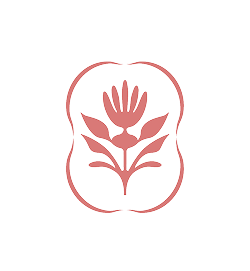Pelvic Organ Prolapse Treatment During Postpartum
If you’ve recently given birth and feel a sense of heaviness, bulging or discomfort in your pelvic region, you’re not alone. At Calyx, we support women through the deeply personal journey of postpartum recovery. If you are in perimenopause or menopause and looking for POP treatment: click here.
What Is Pelvic Organ Prolapse?
Pelvic organ prolapse happens when one or more pelvic organs (bladder, uterus, rectum) descend due to weakened pelvic floor muscles. This may result in symptoms like pressure, incontinence, or the sensation of a vaginal bulge.
Is This Safe for Me?
Yes, our approach is non-invasive and tailored specifically for postpartum women. We consider your delivery history (vaginal or caesarean), tissue healing stage and any related pelvic concerns. All assessments and treatments are gentle, professional and always with your consent.
Who Should Consider Pelvic Organ Prolapse Treatment?
If you experience vaginal heaviness, incontinence, pain during intimacy, or a sense that “something is falling out,” it’s worth speaking to a physiotherapist. Many mums wait for months, thinking this is normal. The truth? Early treatment brings faster and better results.
-
Do I Need a Referral?
No referral is needed. You can book directly with us. If needed, we’re happy to coordinate care with your OBGYN or GP.
-
Can pelvic organ prolapse improve without surgery?
Yes. In many postpartum cases, mild to moderate prolapse can improve significantly with conservative treatment. A physiotherapist can guide you through personalised exercises, posture adjustments and breathing techniques that help reduce symptoms, support healing and prevent progression.
Symptoms and Signs You May Benefit from Pelvic Organ Prolapse Treatment
Common signs include:
- Sensation of heaviness or pressure in the pelvis
- Visible or palpable vaginal bulge
- Urinary leakage or incomplete emptying
- Difficulty passing stools
- Pain or discomfort during intercourse
These signs suggest that your pelvic organs or support structures may not be functioning optimally, often due to the stretching and pressure changes that occur during pregnancy and childbirth.
What Happens During Your Session
Your session will include a full assessment, targeted treatment, movement guidance and a clear plan to support ongoing recovery.
-
Will There Be an Internal Vaginal Assessment?
Only with your full consent. A gentle internal pelvic floor exam allows your physiotherapist to assess muscle strength and the degree of prolapse more accurately. Your comfort is our priority and nothing is done without your clear, informed consent.
-
Do I Need to Prepare or Bring Anything?
We recommend comfortable clothing and a list of symptoms or questions.
-
What Happens After the Session?
You’ll leave with a clear plan, simple exercises and a renewed sense of what’s possible. Many women feel relief after understanding what’s going on.
Techniques and Tools We May Use
- Pelvic floor muscle training
- Perineal support garments
- Real-time ultrasound for Biofeedback
- Education on Toileting Techniques and Bowel/Bladder Habits
- Core Strengthening
- Lifestyle and Load Modification
-
Is It Painful or Uncomfortable?
Not at all. Techniques like biofeedback, guided breathing, manual therapy and gentle muscle retraining are non-invasive and safe.
-
How We Ensure Safety in Each Method
All our tools are clinically approved and used under strict hygiene and safety protocols.
Your Progress and Results Over Time
-
How Soon Will I See Improvement?
Improvement depends on the severity, chronicity, and underlying causes of your symptoms. In some cases, support from a gynaecologist may be needed. Your physiotherapist will work closely with you to set realistic expectations and guide you through each step of your recovery.
-
How Often Will I Need Sessions?
The frequency of sessions depends on several factors, including your symptoms, goals, medical history, lifestyle demands, and how your body responds to treatment.
Your physiotherapist will first complete a thorough assessment to understand your condition fully before recommending a personalised treatment plan.
-
Will I Need Maintenance Visits?
After early recovery, continued support can help you regain strength and confidence as you care for your baby and step into your new (or expanded) role as a mum. You may benefit from one-to-one check-ins or join Regrounded After Birth, our signature programme designed to support healing, movement, and a safe return to daily life and higher-level exercise.
-
What Do I Need to Do at Home?
You’ll receive personalized home practices. Consistency with home strategies can greatly support your recovery and help you feel more in control between sessions.
Why Women Trust Calyx for Pelvic Organ Prolapse Treatment
We’re more than a clinic, we’re a community of women helping women heal. Our team approaches each client with clinical expertise, empathy and absolute discretion.
Are Sessions Covered by Insurance?
Postpartum physiotherapy coverage depends on your insurer and plan. We recommend checking directly with your provider. If needed, we’re happy to provide detailed invoices to support your claim.
What Makes Calyx Different?
Our therapists are certified in women’s health physiotherapy. We take a whole-body, whole-person approach. Collaborative care with gynaecologists.
How Much Does It Cost?
We offer transparent session-based pricing. See price list.
Take the First Step Toward Relief
You deserve to feel supported and seen. Whether you’re days or years postpartum, healing is always possible. Book a confidential assessment or speak to a women’s health specialist today.



